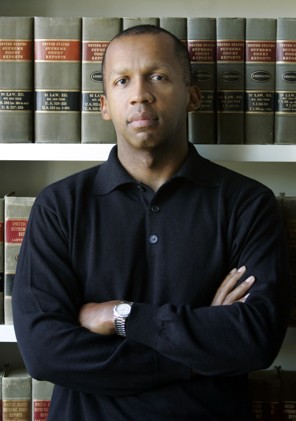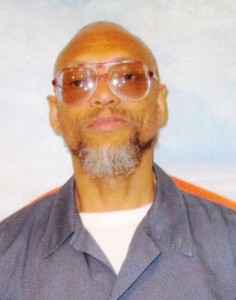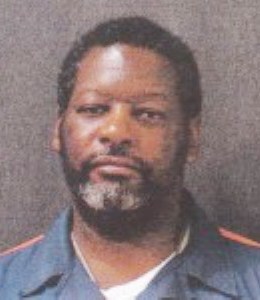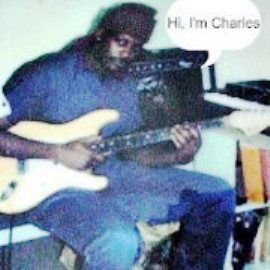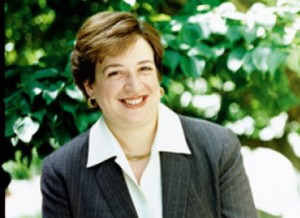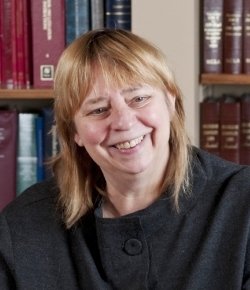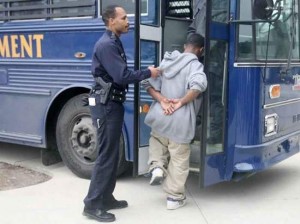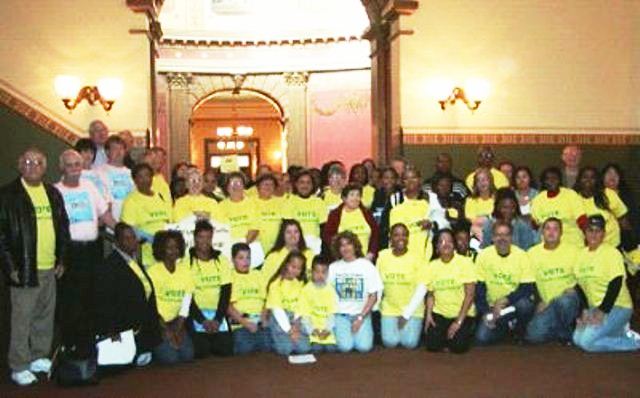
Families and even victims of juvenile offenders joined to support "Second Chance" legislation outlawing JLWOP at state legislature in 2006.
Ruling did not completely outlaw juvenile life without parole
Michigan attorneys rally to represent 360 lifers in re-sentencing hearings
By Diane Bukowski
July 2, 2012
DETROIT, MI – A light has come shining for more than 2600 people in the U.S. sent to die in prison when they were children. There are 360 such cases in Michigan, the second highest number among the states. On June 25, the U.S. Supreme Court required that juveniles given mandatory life without parole sentences in homicide cases be re-sentenced.
The ruling affects all those who were under the age of 18 at the time of the crime and is retroactive.
The decision, Miller v. Alabama/Jackson v. Arkansas (link at end of story) “requires the lower courts to conduct new sentencing hearings where judges will have to consider children’s individual characters and life circumstances, including age, as well as the circumstances of the crime,” according to the Equal Justice Initiative (EJI).
EJI’s director Attorney Bryan Stevenson argued the cases of Evan Miller and Kuntrell Jackson, both 14 at the time of the crimes for which they were convicted. His own grandfather was killed by a group of juveniles, but that has not affected his passion for justice for prisoners, especially juveniles. He has also argued many death penalty cases.
The Court said such sentences violate Eighth Amendment protections against “cruel and unusual punishment.” Writing for the majority, Supreme Court Justice Elena Kagan said the “imposition of a State’s most severe penalties on juvenile offenders cannot proceed as though they were not children.”
The ruling struck down statutes in 29 states, including Michigan. The United States, which has a record 2.5 million people in prison, remains the only country in the world which allows such sentences. It is one of only two countries that refused to sign the United Nations’ Declaration on the Rights of a Child.
The Court’s ruling in Miller v. Alabama/Jackson v. Arkansas flowed from its earlier decisions outlawing the death penalty and life without parole for juveniles in non-homicide cases, Roper v. Simmons and Graham v. Floridarespectively.
“This is an important win for children,” Attorney Stevenson said in an EJI article. “The Court took a significant step forward by recognizing the fundamental unfairness of mandatory death-in-prison sentences that don’t allow sentencers to consider the unique status of children and their potential for change. The Court has recognized that children need additional attention and protection in the criminal justice system.”
The decision does not prevent judges from re-sentencing juvenile offenders to life without parole, although it severely restricts their options.
It applies only to juveniles sentenced under mandatory guidelines, which includes the majority of cases. In many states, bindover of a juvenile as an adult for certain crimes is automatic, while in other cases, the decision is made by a prosecutor or judge.

- Evan Miller, 14, with co-defendant Colby Smith; Miller tried to kill himself four times due to abuse, the first time at 5 years old.
Michigan has imposed mandatory life without parole sentences in first-degree murder cases since 1931, and now binds over children without regard to age as adults in some cases. Despite a broad campaign demanding a second chance for juveniles, Michigan’s legislature under former Governor Jennifer Granholm refused to enact proposed laws against juvenile life without parole.
Juvenile lifer Edward Sanders has been incarcerated in Michigan prisons since 1975, when he was 17, for aiding and abetting a first-degree murder. He spoke to VOD from Kinross Correctional Facility in Kincheloe, in the state’s Upper Peninsula.
He expressed overwhelming elation as well as anguish, as he looked back on his time behind bars. He was not the shooter in his case, but said he acknowledges his responsibility to the victim and his family, and prays for them every day. He also expressed concern that he be re-sentenced, not on first-degree murder charges, but at least on second-degree or manslaughter charges, because his jury was never properly instructed on those alternatives.
“All praise to Allah,” Sanders said. “This is an answer to my prayer which I have been awaiting for 38 years. I long ago repented and asked for forgiveness and mercy for what I did as a kid, and now finally the U.S. Supreme Court has done this after our legislators failed to respond. This is a good decision for our society. It puts us in a position to be a model for the rest of the world.”
He said life without parole does not allow a juvenile offender to move on from his youth.
“What happened was not something I would do as an adult,” Sanders said. “I look back and I see myself then, and we are two different persons. To tell a kid there is a law on the books that will do this to you is not comprehensible to him.”
Since his incarceration, Sanders earned a bachelor’s degree before Michigan banned higher education in the prison system. He is a devout Muslim, who prays and exercises every day. He has also studied law and functioned as a “jail-house lawyer” to help others.
He said juvenile life without parole (JLWOP) is both a human rights and a civil rights issue.
“Adults commit crimes against children every day and they are forgiven,” Sanders said. “They have molested children in church and some of these same children are now locked up. Miller tried to kill himself four times, once when he was the age of a kindergartener, because of the abuse he suffered before he went to prison at 14. There are more rapes committed against children by adults than vice versa. Adults abandon children, society abandons children, and they are not punished.”
He said juveniles serve a much longer term of years than adult offenders, making such sentences inherently unequal.
“Mound Road was the prison where I spent the longest, 10 years,” he said. “Do you know what it is like to see the whole prison environment change, to have no one left you even recognize, no one who talks to you in the yard, because so many except you have finally gone home? Not to have anyone say hello to you and call your name?”
He said he has watched as people young enough to be his children have come and gone. He has watched juvenile lifers who came in barely needing to shave grow old and gray, with some ending up in wheelchairs and some dying. He was transferred from Mound after his brother Richard was moved there inadvertently. It was the first time in 35 years that he had seen and spoken to his brother.
Wendy Lewis, a disabled veteran and mother, was 12 years old when her brother Charles Lewis, then 17, was sentenced to mandatory life without parole in 1976.
“I was very close to Charles,” Lewis said. “I looked up to him, he was my idol. I tried to follow him everywhere he went. He was a musician who played with Anita Bryant’s group back then. Our basement was full of musical instruments. I would sit on the basement steps and listen as so many people practiced with him. He used to ask me to braid his hair so he could get a girl-friend. But he always had to bring everybody with him when he went to a girl’s house, so it was hard for him to ‘get game.’”
Breaking into tears, Lewis said, “My brother never got the chance to ‘get game.’ I’ll never forget the day police officer Gilbert Hill [who later became City Council President] came to our house and took him away for killing an officer who was actually shot by another cop in a domestic situation. My mother and father had no money to hire an attorney, so he got two court-appointed attorneys who stipulated to his possession of a gun although there was no gun in evidence.”
Lewis said for the last 37 years, she and her mother Rosie Lewis have kept in constant contact with Charles, writing, visiting and now emailing him.
“He never had a social security number, he never had a job, he has never had the chance to have children,” she said. “If he is released, it has been so long since he has been out in the world that he will have to re-learn everything.”
The Supreme Court decision attests to much of the experiences of Sanders, Lewis and their families, along with the experience of thousands of other juvenile lifers.
Justice Kagan summarized many of the reasons why children cannot be treated like “miniature adults” in the decision.
“Mandatory life without parole for a juvenile precludes consideration of his chronological age and its hallmark features—among them, immaturity, impetuosity, and failure to appreciate risks and consequences,” Kagan wrote. “It prevents taking into account the family and home environment that surrounds him—and from which he cannot usually extricate himself—no matter how brutal or dysfunctional. It neglects the circumstances of his homicide offense, including the extent of his participation in the conduct and the way familial and peer pressures may have affected him. Indeed, it ignores that he might have been charged and convicted of a lesser offense if not for incompetencies associated with youth—for example, his inability to deal with police officers or prosecutors (including on a plea agreement) or his incapacity to assist his own attorneys . . . And finally, this mandatory punishment disregards the possibility of rehabilitation even when circumstances most suggest it.”
Attorney Deborah LaBelle, with the Michigan chapter of the American Civil Liberties Union, has fought juvenile life without parole sentences for over 10 years. She said Michigan defense attorneys have a monumental task ahead of them.
“There are probably 360 prisoners in Michigan serving life without parole for crimes committed before they were 18,” LaBelle told VOD. “Each one is entitled to re-sentencing. It will be necessary to present all the evidence including the prisoner’s juvenile status, his/her home circumstances, and lesser culpability so the court can issue a proportional sentence based on the individual’s youthfulness. There are a total of six factors the decision requires judges to consider in the mitigation hearings.”
She said defense attorneys and their organizations across the state are “gearing up to make sure that each person has very skilled attorneys. Many of the judges who chafed at this mandatory requirement will recognize that a lesser term is necessary.”
She said much of their work will have to be done pro bono due to the circumstances of many juvenile lifers.
The organizations, including the Michigan ACLU, the State Appellate Defender’s Office (SADO), the Michigan Criminal Defense Attorneys Association, and various law school clinics, are planning to hold training sessions for defense attorneys beginning July 27, with the details still to be worked out.
“I hope Michigan will begin to move on reforming its laws that automatically designate 17-year-olds as adults, in light of this decision,” LaBelle said. “That is the case in civil law. If a 17-year-old cannot be responsible enough under civil legislation, they shouldn’t be criminally punished as adults.”
LaBelle is still pursuing a precedent-setting federal case known originally as Hill v. Granholm. In it, the plaintiff juvenile offenders are requesting a broader decision than that issued by the U.S. Supreme Court—to outlaw all juvenile life without parole sentences period. A status conference in the case has now been set for July 11, 2012 at 1:45 p.m. before U.S. District Court Judge John Corbett O’Meara in Ann Arbor.
Attorney Mark Fancher also has long fought for the rights of juveniles, particularly those of color. He was co-authored the Michigan ACLU study, “The School to Prison Pipeline.” It found that children of color are far more likely to be suspended from school in districts throughout the state, leaving them vulnerable to the influence of the streets and eventual incarceration.
“We are extremely pleased by this development,” Fancher said. “It is welcome news to anyone at all concerned about maintaining the most basic morality in our criminal justice system. Juvenile life without parole disproportionately affects youth of color, which compounds the injustice of this sentence. Lately, the public has been very anxious to ignore the impact of race in so many situations, but this ruling came from a Court not known to be bleeding heart liberals who bend over backwards on racial issues.”
Fancher added, “Hopefully this will not be an uphill battle for our state’s juvenile lifers, and the state’s judges will take their cue from the Supreme Court, which said that juvenile life without parole is at the very least disfavored if not outright unconstitutional.”
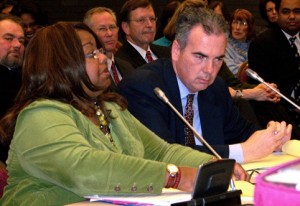
- Wayne County Prosecutor Kym Worthy testifies before state legislature, with top assistant prosecutor Robert Moran at right.
But it appears that state officials are gearing up for a battle.
Wayne County Prosecutor Kym Worthy’s communications officer Maria Miller said, “Currently our office is working with the Prosecuting Attorneys Coordinating Council and the Michigan Prosecuting Attorneys Association (PAAC/PAM) to formulate a uniform policy that will be applied by the 83 elected prosecutors across the across the state.”
Worthy, along with other prosecutors across the state, testified before Michigan legislators against the proposed “Second Chance” legislation for juvenile lifers.
Michigan Attorney General Bill Schuette issued a statement that further gives advocates for juvenile lifers cause for concern.
“The Supreme Court did uphold the discretionary ability of sentencing judges to issue life without parole sentences when appropriate,” Schuette, known for his right-wing views, said. “”We will comply with the Court’s ruling, and will work aggressively to ensure reviewing judges never lose sight of the victims and families who were permanently damaged by these vicious murders. I intend to work closely with prosecutors throughout Michigan to ensure the courts are fully informed of the facts and circumstances surrounding the murders that tragically took victims’ lives and merited these life sentences.”
His release stressed, “At these hearings, the judges will maintain the ability to affirm the sentences of life without parole, or to modify them to make the life sentences subject to parole.”
In fact, justice cries out for juvenile lifers like Edward Sanders, who has spent nearly 60 percent of his life behind bars, to be re-sentenced to “time served.” The majority of countries in the world do not even have life without parole sentences for any category of offender, with many limiting sentences for ANY crime to no more than 15 years.

- Former parole board head Stephen Marschke has long been suspected in the drowning death of a Black Benton Harbor youth in 1994, when he was county sheriff.
Even sentences of life with parole will subject Michigan’s juvenile offenders to the proclivities of a parole board that has refused to release thousands of parolable lifers. In many of these cases, sentencing judges have said they intended the individuals to become eligible for parole after 10 to 15 years if they showed evidence of rehabilitation. That was the parole board’s practice prior to the advent of former Governor John Engler’s administration.
Under Engler, then Parole Board head Stephen Marschke, a former Berrien County Sheriff, declared, “Life means life.”
In fact, for juveniles and for all prisoners, “life” means “death” in prison.
Click on Miller v Alalbama decision to read Supreme Court’s entire decision, along with dissents.
Previous related stories in VOD:
http://voiceofdetroit.net/2011/04/23/aclu-argues-against-michigan%e2%80%99s-no-parole-law/
http://voiceofdetroit.net/2011/03/06/voice-of-juvenile-defendants/
Visit msnbc.com for breaking news, world news, and news about the economy


